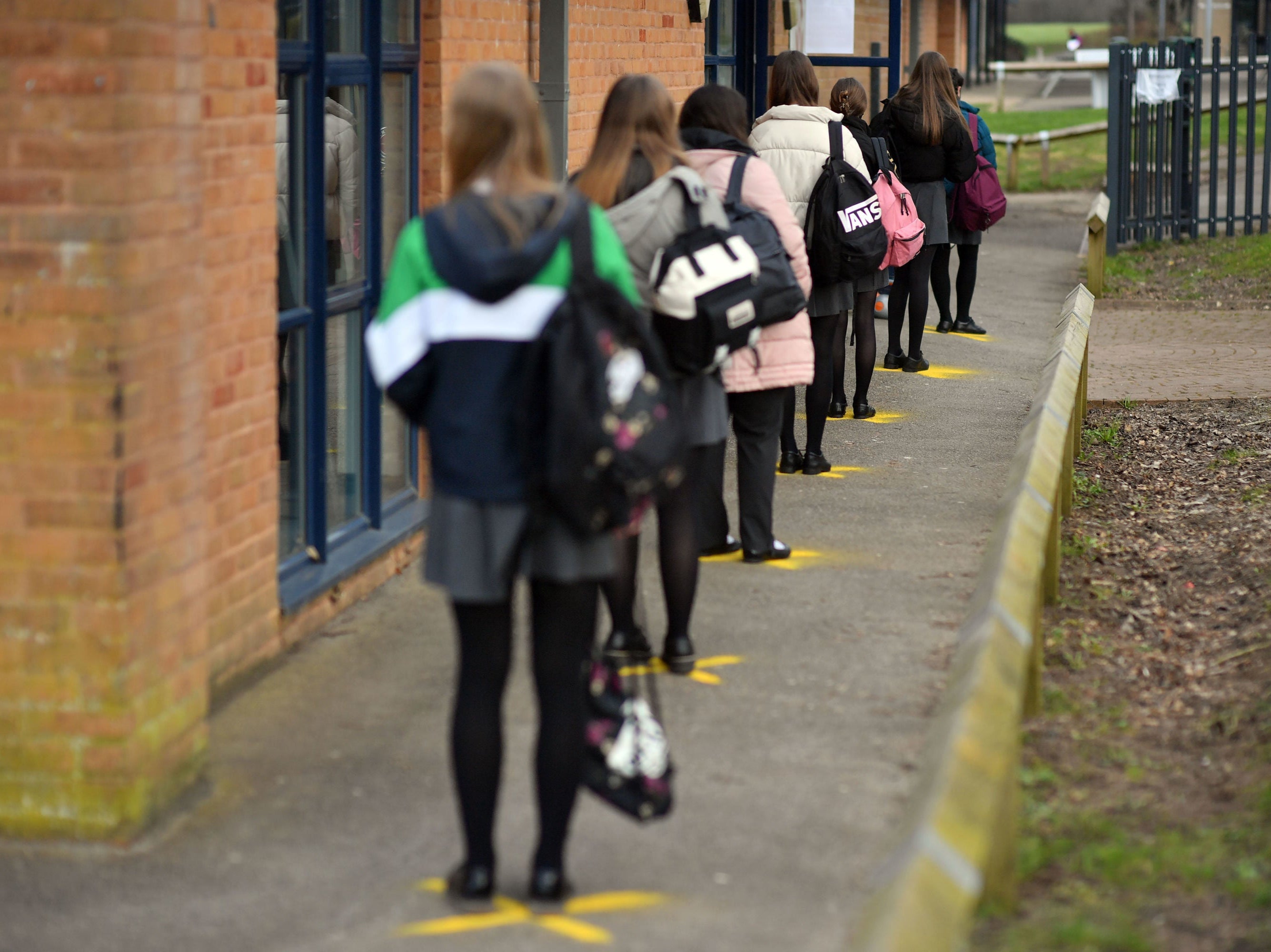Why have Covid infections plateaued?
After weeks of falling case rates in England, infections have begun to level off

Your support helps us to tell the story
From reproductive rights to climate change to Big Tech, The Independent is on the ground when the story is developing. Whether it's investigating the financials of Elon Musk's pro-Trump PAC or producing our latest documentary, 'The A Word', which shines a light on the American women fighting for reproductive rights, we know how important it is to parse out the facts from the messaging.
At such a critical moment in US history, we need reporters on the ground. Your donation allows us to keep sending journalists to speak to both sides of the story.
The Independent is trusted by Americans across the entire political spectrum. And unlike many other quality news outlets, we choose not to lock Americans out of our reporting and analysis with paywalls. We believe quality journalism should be available to everyone, paid for by those who can afford it.
Your support makes all the difference.After weeks of falling coronavirus infections in England, new cases have started to plateau, figures suggest.
About one in 340 people in private households in England had Covid-19 in the week to 20 March, according to the latest Office for National Statistics (ONS) estimates – which is unchanged on the previous week.
It is the first time community infections have not declined since late January, after England’s third lockdown was imposed on 5 January.
The ONS said the percentage of people testing positive was “likely to have levelled off” – but why has this happened?
There is no clear definitive answer, but the reopening of schools is thought to be one major factor.
Read more:
- Follow Covid news live: Latest lockdown updates
- Vonder Leyen says AstraZeneca must ‘catch up’ on vaccines to EU
- Lockdown roadmap dates: Which rules change on 29 March?
- Extreme lockdown laws extended for a further six months despite major Tory revolt
- Pfizer Covid vaccine produces ‘robust’ antibody response after first dose, new study shows
Both ONS and Public Health England (PHE) figures suggest cases have risen among school-age children since pupils returned to the classroom from 8 March.
On Friday, ONS figures revealed Covid-19 infection levels had increased slightly among children of secondary school age in England.
The percentage of children in years 7 to 11 likely to have tested positive for Covid-19 in the week to 20 March was said to be 0.43 per cent, up from 0.32 per cent the previous week.
The return to the classroom may have affected the spread of coronavirus because of the mixing of staff, parents and students.
Testing has also been scaled up, with all students in secondary schools expected to complete three rapid Covid-19 tests on their return, spaced three to five days apart, then further tests twice a week.
The ONS said rates are likely to have fallen among older teenagers and young adults (school year 12 to age 34) as well as those aged 50 to 69, but the trend is uncertain for other age groups.
All figures are for infections reported by people in private households, not other settings such as hospitals and care homes.
On Thursday, PHE said Covid case rates had risen among all school-age children.
In its latest weekly surveillance report, it said the rate for 10 to 19-year-olds stood at 100.7 cases per 100,000 in the seven days to 21 March.
This was the highest rate among the age groups and was up week-on-week from 79.7.
Among five- to nine-year-olds, the case rate rose from 39.9 to 63.5 per 100,000. But for children aged four and under, the rate had fallen from 34.9 to 32.4.
Currently, only children at very high risk of severe infection are offered a coronavirus vaccine.
Oxford University is carrying out a clinical trial on children aged six to 17 to test the safety and efficacy of its jab, developed alongside AstraZeneca, in younger age groups, with initial results expected in the summer.
The weekly PHE report also showed case rates appeared to be leveling off in some regions of England, although Yorkshire and the Humber had recorded a slight rise.
In Yorkshire and the Humber, the rate of new cases stood at 110.4 per 100,000 people in the seven days to 21 March.
This was the highest in the country and up from 109.8 in the previous week.
Some regions have had broadly unchanged week-on-week rates, including the East Midlands (down from 77.8 to 76.8), Eastern England (down from 45.7 to 43.8), South East England (down from 35.6 to 34.2) and the West Midlands (down from 66.7 to 65.4).

England’s chief medical officer Chris Whitty on Tuesday said the recent decline in infections during the latest national lockdown was slowing, but that this was to be expected.
Lawrence Young, professor of molecular oncology at Warwick Medical School, also said it was “inevitable” that infections would “start to level off and even increase as we ease from lockdown”.
“We are just beginning to see the impact of students returning to school, particularly in Wales and Scotland where schools went back earlier,” he said.
“Every change as we slowly release from lockdown is likely to have an effect on the levels of infection. This is why the roadmap is taking a cautious approach – leaving gaps between each relaxation so that the impact on infections can be carefully monitored.”
Professor James Naismith, from the University of Oxford, said it appeared the impact of reopening schools on Covid rates was beginning to emerge.
“What has to be understood is that the new variants are harder to control and it seems likely that the limited reopening of schools has started to show up in data,” he said.
"Scotland has gone into this cycle first - its numbers levelled off around two weeks ago. Scotland should therefore be particularly closely watched with respect to decisions about further relaxation across the UK.
“If cases continue to rise in Scotland, it is safe to assume that this will happen everywhere else a week or two later.”
Additional reporting by PA
Join our commenting forum
Join thought-provoking conversations, follow other Independent readers and see their replies
Comments